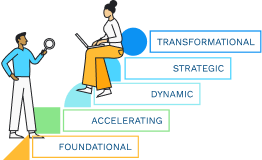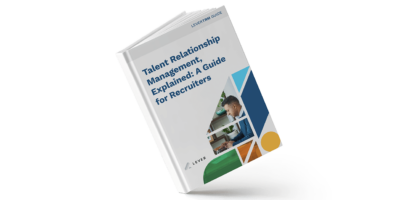This year’s National Disability Employment Awareness Month theme? “Right Talent, Right Now.”
This annual initiative held in October for the past 70+ years “celebrates the contributions of workers with disabilities and educates about the value of a workforce inclusive of their skills and talents,” the Office of Disability Employment Policy stated.
Recognizing workers’ value is particularly imperative amid this rocking economy. Being able to identify, tap into, and capitalize upon qualified, hard-working, and reliable talent who will hit the ground running is a dream goal for most employers and recruiters.
However, one valuable candidate base — workers with disabilities — often gets overlooked.
With the disability unemployment rate near 8%, per the Department of Labor — more than twice that of those with no disability — there is room for improvement. While the reasons vary, an underlying perception is workers with disabilities are costly or unreliable performers.
Per Sandy Murillo, an advocate for disable workers who hosts hosts “The Disability Minute,” this is because employers “believe we are not capable of doing the job, or because they are unaware about the many adaptive techniques and devices that are available and allow us to work.”
Many of the concerns around hiring workers with disabilities, though, are easily debunked.
3 myths about workers with disabilities, debunked
Here are three misconceptions employers have around hiring individuals with disabilities.
Myth #1: Workers with disabilities will be unreliable performers.
“People with disabilities are as capable as anyone else!,” Sandy stated. They likely already have considered and prepared solutions for any doubts an employer might come up with.
Some employers think “blind people … are simply less competent than sighted people,” per National Federation of the Blind Employment Committee Chair Dick Davis.
Dick’s advice to employers?
Ask the same questions of those with disabilities as you do non-disabled. Provide a detailed job description, and reply to interviewee’s questions.
Dick also suggests asking candidates with disabilities to describe work-related processes.
“Ask everyone, not just [people with disabilities], what methods they would use,” Dick said. This will alleviate accommodation concerns (e.g., in-office assistance programs needed) and unearth candidates’ analytical and problem-solving skills.
Many large corporations are deliberately prioritizing equal opportunity by recruiting people with disabilities for their unique skills and abilities as well as their dependability on the job.
“[C]ompanies such as CVS, Microsoft and [PWC] find people with disabilities are often more reliable and loyal,” USA Today economics and jobs reporter Paul Davis wrote USA TODAY. “And those with conditions such as autism can be more detail-oriented.”
Paul noted Microsoft, in particular, hired 50-plus people with autism in a three-year span.
Myth #2: Absenteeism and employee turnover will be excessive.
The process of hiring new employees already is wrought with anxiety. Concerns include selecting a skilled candidate who dependably shows up to work each day. These fears can be exacerbated when hiring a person with a disability.
- Will flare-ups of their disability cause excessive absenteeism?
- Will they tend to be sick more than non-disable employees?
- Will they fall behind on the job and need help returning to work?
Disability expert Charlotte Gerber noted the Journal of Rehabilitation found employees with disabilities had 1.24 fewer scheduled absences than non-disabled workers.
The research also found, unless they have a diagnosed immune deficiency, workers with disabilities often are no more vulnerable to illness than non-disabled employees.
The takeaway? Don’t let unfounded bias creep its way into your recruiting process.
Understand that disabled job candidates are just as (if not more) capable — and likely to be just as loyal and productive for your business — as those with no disabilities.
Myth #3: Disable workers will need costly accommodations.
Will the company have to invest in expensive tech or equipment for workers with disabilities? Will office space need to be redesigned? How will this affect an already tight budget?
These are just a handful of the common cost-related questions employers fear will rock the hiring boat when hiring and onboarding a worker with a disability.
The good news? Costs to accommodate workers with disabilities are often lower than executive leaders anticipated.
This is because they often provide their own adaptations (e.g. hearing aids, canes, wheelchairs, etc.) containing overall costs to employers to less than $500. (More often than not, to zero.)
The Office of Disability Employment Policy’s Job Accommodation Network found 15% of accommodations typically cost nothing, while 51% tend percent cost $1-$500.
Watch our webinar with Ultranauts to discover the competitive advantages of hiring with neurodiversity in mind and how you can (and should) evolve your recruitment process.


